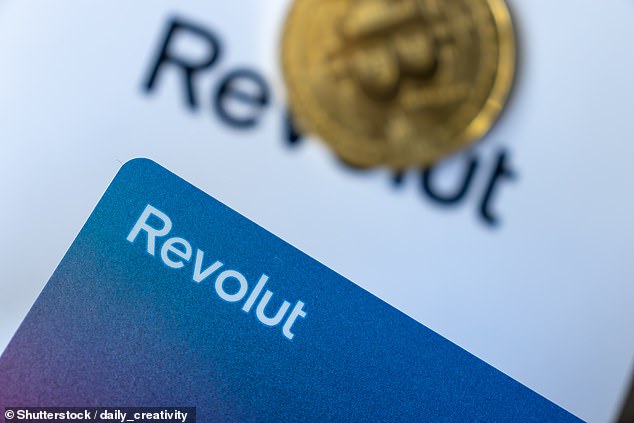Revolut's recent results show it has lost £25 million
- Revolut made a loss because it did not reveal when it would obtain a banking license
- Its financial app business posted a pre-tax loss of £25.4 million for the year
- The Group's operating profit was negatively affected by rising costs, which amounted to £667 million
Revolut made a loss last year because it did not announce when it would obtain a banking license.
In its deferred accounts for 2022 published yesterday, the financial app company posted a pre-tax loss for the year of £25.4 million, compared with a profit of £39.8 million in 2021.
The group's operating profit was negatively affected by rising costs, which rose from £380 million in 2021 to £667 million, while its workforce more than doubled.
It also suffered a £17 million hit in the first quarter of the year after a flaw in its payments system allowed criminals to siphon millions from its company accounts.
The accounts also showed that Revolut's highest-paid director, believed to be CEO Nik Storonsky, saw wages rise from £10.3m in 2021 to £17.8m. The majority of this consisted of share-based payments.
The losses came despite the group's turnover rising 45 per cent to £923 million as it added more than 9.8 million new customers to its books. The company also expects a turnover of £1.7 billion this year.
But Revolut failed to provide any updates on the status of its all-important application for a UK banking licence, with Storonsky, 39, simply saying the group remained “committed” to securing the licence.
The company also did not provide a timeline for its application, despite nearly 300 days since a permit was expected to be issued “soon.”
The continued inability to secure a license has been a sore point for the fintech company, which has suffered a series of embarrassing setbacks this year.
The delays are also causing nervousness among investors, with one major backer previously telling the Mail they were becoming 'impatient'.
Revolut applied for a license from the Bank of England in 2021, which would allow it to expand its services in Britain to include taking deposits, making loans and offering credit cards.
The process was thought to take about two years. But almost three years later it is still struggling with the demands of the central bank's Prudential Regulation Authority. When the long-delayed 2021 accounts were published in March, Mikko Salovaara, Revolut's then chief financial officer, insisted the permit would be granted soon. But he quit in May for “personal reasons.”

No update: Revolut has provided no updates on the status of its all-important application for a UK banking license
The delays in the permit application led to an outburst from Storonsky. He branded Britain an undesirable place to do business. However, city analysts dismissed his comments as a “tantrum” and “sour grapes.”
Revolut's figures also came under intense scrutiny after accountant BDO revealed it was unable to independently verify three-quarters of its £636m turnover, saying some information may have been 'materially misstated'.
BDO has again issued a qualified opinion when assessing the latest accounts for 2022.
But the auditor insisted that previous issues surrounding Revolut's controls had been “resolved” and that the company had been able to “obtain sufficient and appropriate audit evidence” for its annual results.
The results were also published days ahead of a year-end deadline, which was extended until the end of September at the company's request. It is the second year in a row that Revolut has failed to publish its accounts on time.
The ongoing questions about the banking license are also increasing pressure on Revolut chairman Martin Gilbert, former head of asset manager Abrdn.
Gilbert said that despite a “challenging landscape, 2022 was an excellent year for Revolut.”
The financier is one of the financial leaders the company has brought in to strengthen its reputation.

